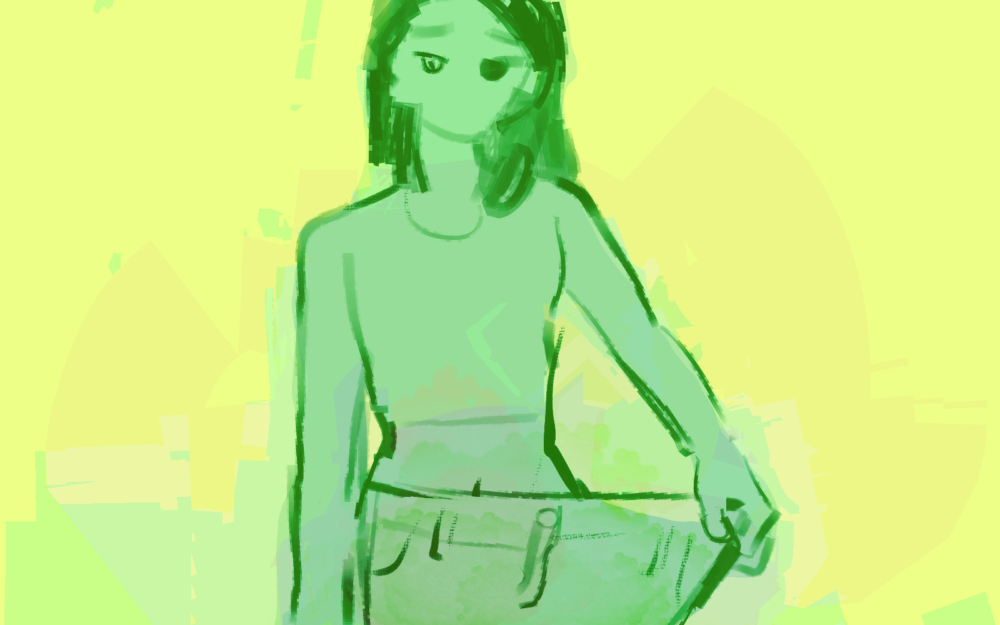
By Jenny Tran
Someone asks if you would like a slice of cake.
Immediately, your cravings scream, “Yes! I would love some cake right now.” But, just as quickly, they are suppressed by the dark, distressing mindset that has been weighing you down for years.
“But, I already ate dessert earlier this week,” you begin to think. “I can’t allow myself to have any more. I will get fat.”
These thoughts—the nagging voice inside you that forces you to restrict food—are likely spawned by the diet culture constructed in society today.
In short, diet culture is defined as a set of beliefs that there is only one right way to look—specifically, being skinny. It essentially worships thinness, encouraging its victims to change their living habits to achieve this “righteous” body. Because, with the right motivation and rigor, everyone can have the perfect body, right?
Wrong.
It may seem ironic, but the mindset that diet culture creates is very unhealthy. It robs the comfortable relationship you have with food and forces you to swallow a very harmful attitude instead. It can grow into an obsessive set of behaviors, taking control over every decision you make with food.
In reality, the idea of a “right body” is simply unrealistic. Bodies come in every shape and size, and being healthy looks different for everyone. We are not all confined in one box, contrary to what diet culture tells us.
Yet, diet culture still reinforces the notion that our appearance must look a certain way. It connects a person’s appearance to their value and happiness, encouraging a stigma that looking larger is bad.
This being said, there is no right way to lose weight. All of our bodies react differently to food. Two people abiding by the exact same eating rules will most likely have different results. And, according to UCLA researchers, at least one-third to two-thirds of people on diets regain more weight than they lost within four or five years.
Diet culture encourages food restrictions that are not only inefficient but actually detrimental to our health. Many diets don’t provide enough nutrients for bodies to function, and can even have negative impacts on metabolism. They can’t fully nourish our bodies.
Because this belief of “less is more” is so tightly knotted into our everyday lives, many don’t even consciously realize how their relationship with food is affected. Small, seemingly innocent thoughts like “Oh man, that was a bit more than I should have eaten!” can easily grow into more disruptive ones like “I’m hungry, but I can’t eat because I already met my daily calorie limit for the day.”
Such behavior, which is so rooted in society, normalizes eating disorders, forcing people to sacrifice their well-being to meet a practically unattainable standard.
Despite this, it’s easy to give in to these social expectations and feel ashamed for not being able to meet them. Body checking inevitably comes with diets and food-watching. Seemingly uncontrollable actions like watching the scale and measuring certain body parts are just some consequences of this.
You might even find yourself unconsciously channeling your insecurities onto other people—your mind might point out how their bodies don’t meet the standard either. And, with those who do meet the standards, you might beat yourself up for not looking like them.
Overall, diet culture has grave influences on not only physical health, but mental health too. It can render you powerless, forcing you to conform to harmful behaviors you might feel no control over.
But, it is always possible to resist the wrath diet culture has over society. Even if it seems impossible to avoid, you can still take control back. You can feel comfortable with not only your eating habits, but your body again.
Resistance doesn’t have to mean completely abandoning healthy food choices or nutrition. It means allowing yourself to eat what makes you feel satisfied instead of restricting yourself from foods you want to eat but feel like you can’t.
You can also try intuitive eating, an approach to eating that listens to your body cues and intuition. Intuitive eaters listen to their cravings and allow themselves to eat when they’re hungry. This style rejects diets, imposing absolutely no guidelines on how you eat. Intuitive eating promotes a healthy attitude toward food and body image.
In the end, it’s all about balance and doing what’s healthy for you. Diet culture shouldn’t overpower your food decisions or your views on appearance. The guidelines it promotes shouldn’t be encouraged by anybody.
Instead of focusing on how you appear on the outside, focus on what makes you feel good on the inside. So, if you feel like it, have that slice of cake.





